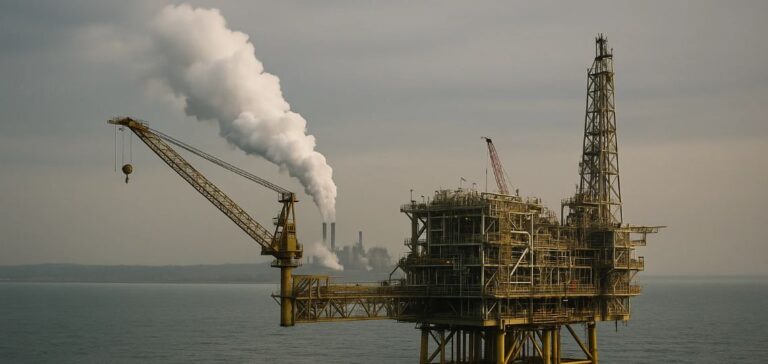The UK government and Italian energy company Eni announced the completion of the financing for a carbon capture and storage (CCS) project in the northwest of England. This project, which involves transporting and burying millions of tonnes of CO2 in the Irish Sea, is entering a crucial phase with the transition to construction. The exact amount of investment was not disclosed, but this development is part of a larger initiative launched by the UK in October 2024 to develop CCS hubs in former industrial areas in the north of England.
UK Energy Minister Ed Miliband emphasized that this project aims to “launch an entirely new clean energy industry” in England, designed to create thousands of jobs and revitalize industrial communities. The project involves transporting CO2 from factories in the northwest of England and northern Wales to depleted natural gas reservoirs in the Liverpool Bay, where the gas will be stored underground.
CO2 Burial and Storage
The project is set to store 4.5 million tonnes of CO2 annually, a volume that could reach 10 million tonnes by 2030, equivalent to the emissions of 4 million vehicles. To achieve this, Eni will utilize offshore platforms and an existing gas pipeline network, while constructing 35 kilometers of new pipelines to transport CO2 to underground reservoirs.
Carbon capture and storage (CCS) is a complex and costly technology, but it is supported by climate experts for its ability to reduce industrial emissions. Although this solution is particularly recommended for sectors difficult to decarbonize, such as cement and steel industries, it remains controversial. Some NGOs criticize the focus on CCS rather than greater investment in renewable energy sources.
A Sector Still in Development
Globally, the current CO2 capture capacity is estimated at just 50.5 million tonnes per year, representing about 0.1% of global emissions, according to the International Energy Agency (IEA). While the UK’s project represents a massive investment, its long-term viability and effectiveness remain under debate, especially given that alternative technologies have not yet been fully proven at large scale.





















